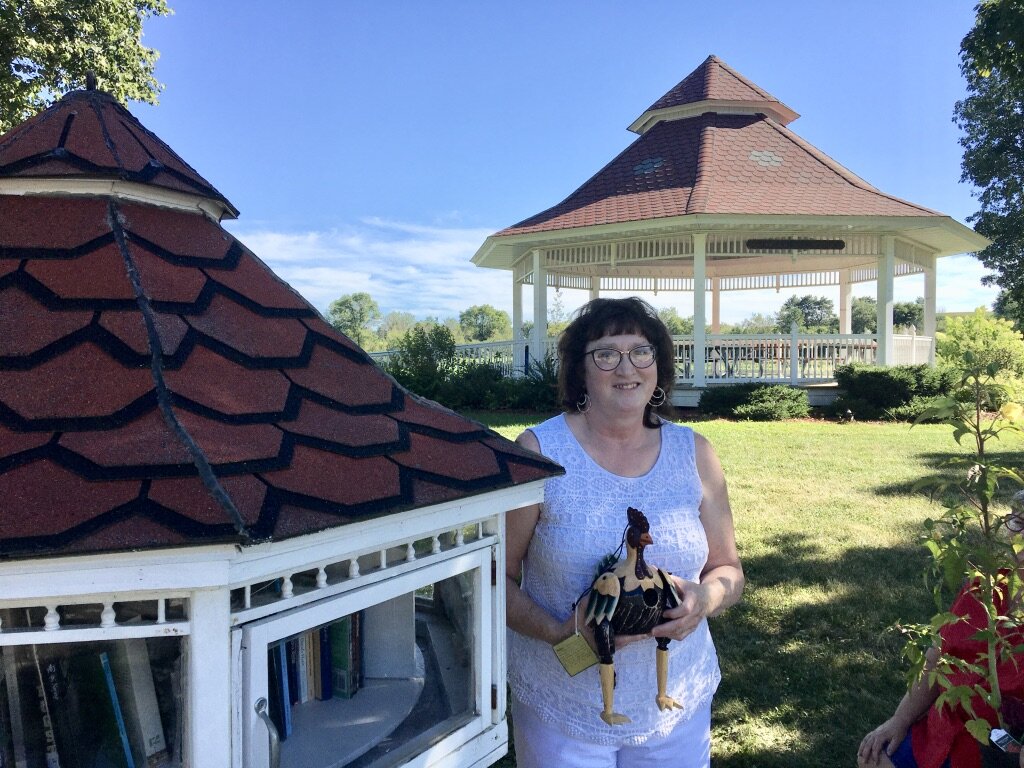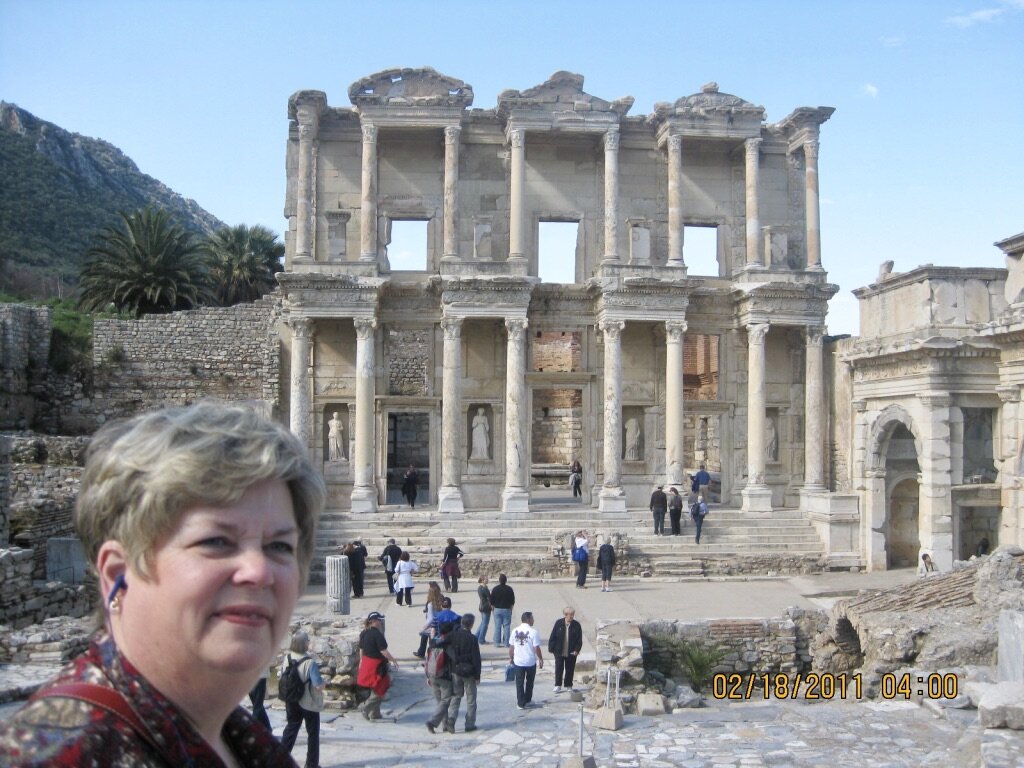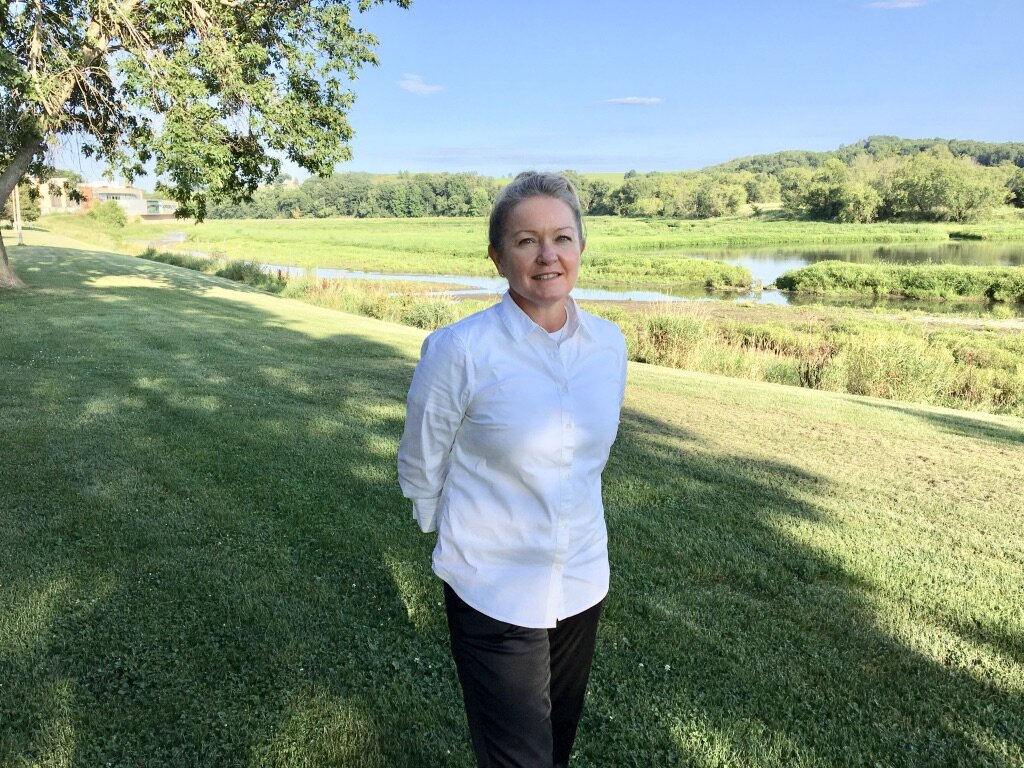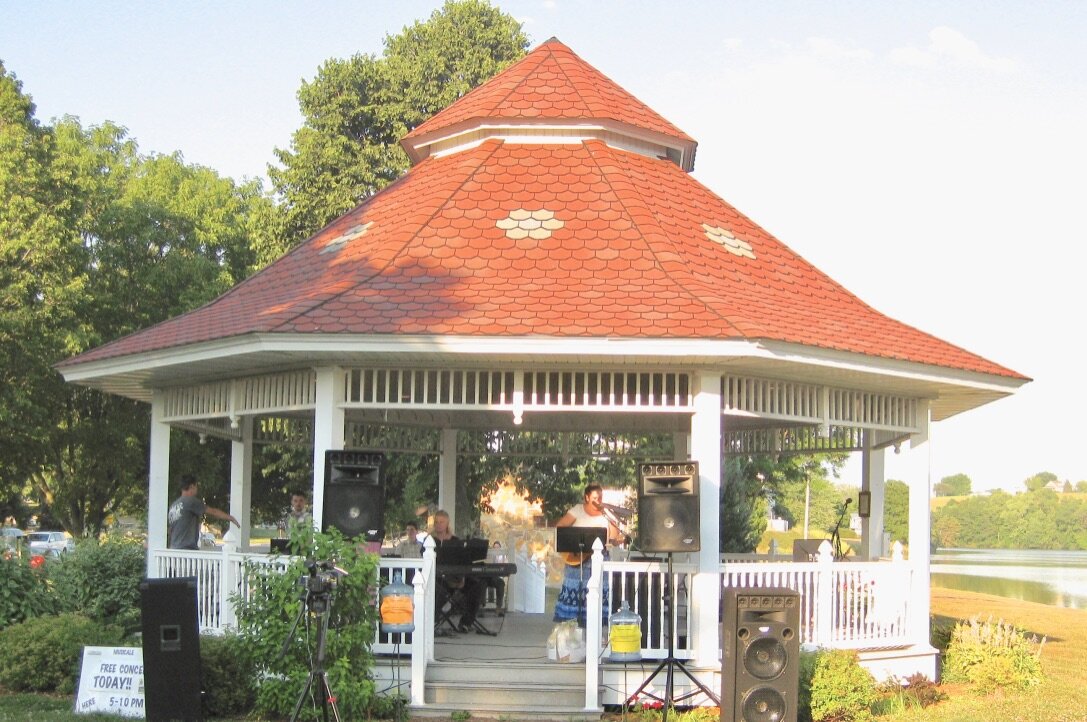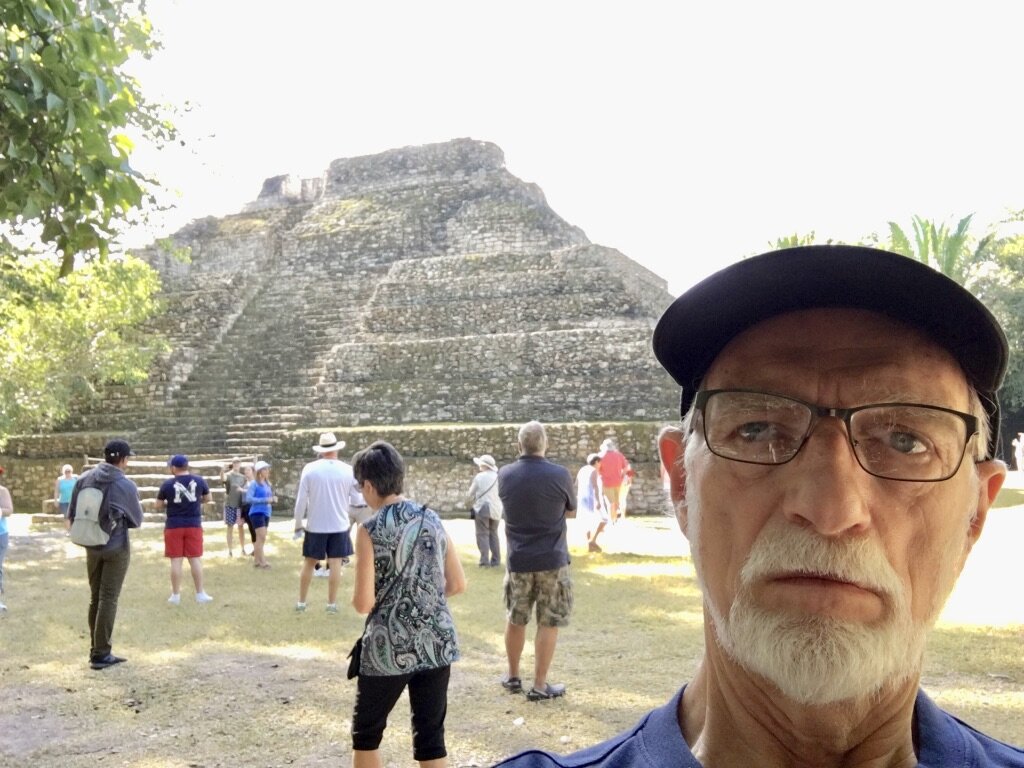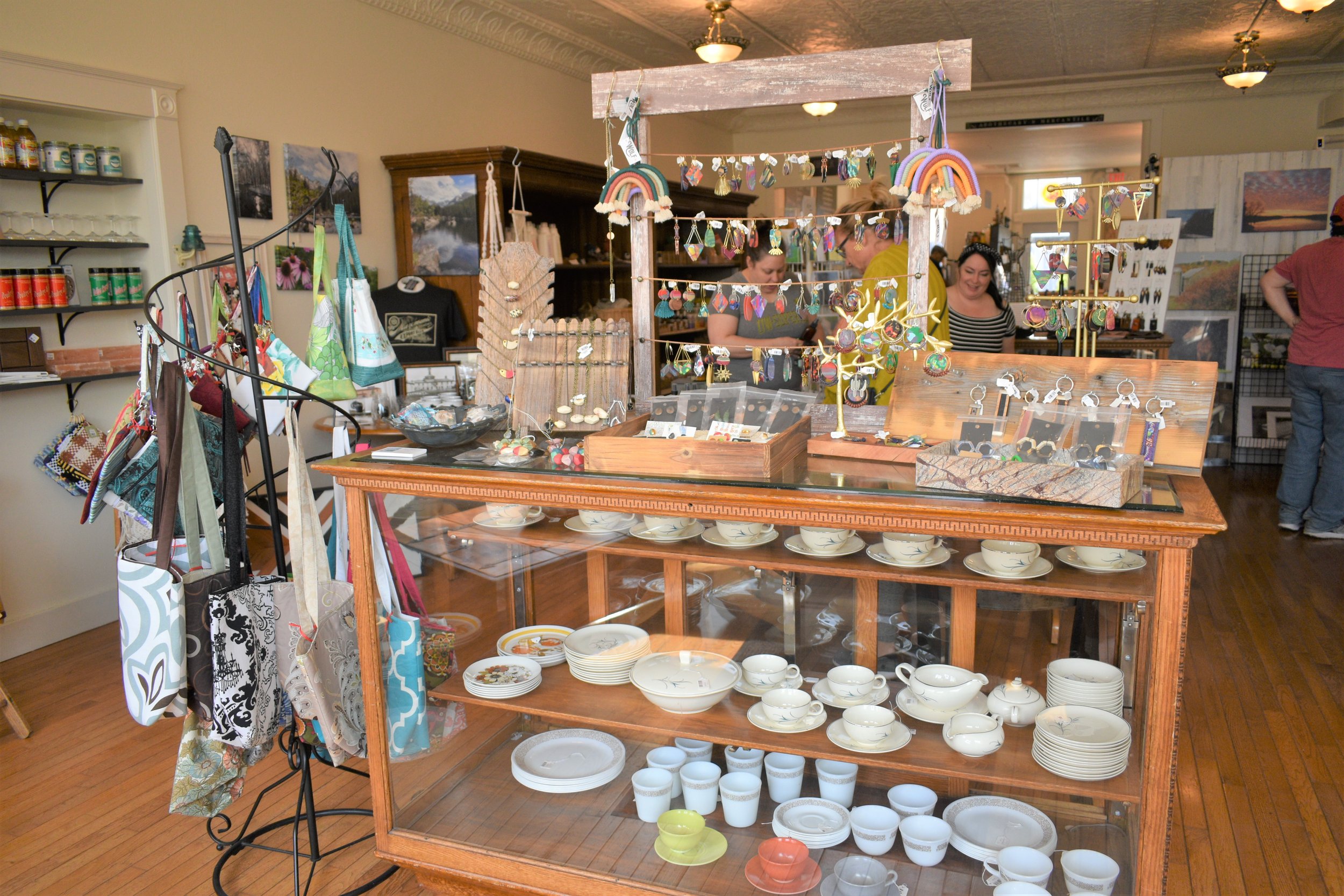Your Public Library: More Than Just a Collection of Books
When my wife and I decided upon the Driftless Area as our retirement home and found a house in Hillsboro that would suit our needs, the next step, before making an offer, was to check out the town. We noted the well-maintained properties, friendly people, and classic establishments, such as the drive-in and local café that mark small towns across the Midwest. Our ultimate test, however, was to visit the public library—one barometer of a community’s character. The librarian’s warm greeting made us immediately feel at home. What cinched the deal was a partially-completed jigsaw puzzle on a table near the exit. We watched as a library patron paused for a minute, inserted a missing piece, and left with a cheery salutation. For Barb and me, that process of building a jigsaw puzzle, piece by piece, symbolized the building of community.
Build community—and disseminate information: that’s what libraries do. Let us consider how your local public library in the Driftless Area, like libraries all over the world and throughout history, serve to connect us all. What is the role of a library? What is meant by “information dissemination,” past, present, and future? How does a library build community? Who are the people who help to fulfill this mission?
A (very) Brief History
From the beginning, libraries were more than buildings full of books (or scrolls). The ancient Celcius Library (117 AD) in Ephesus, Turkey, built over the tomb of Gaius Julius Celsus Polemaeanus, governor of the province of Asia, for example, contained an auditorium for lectures and presentations. When my wife, Barb, and I visited the Ephesus Library in 2011, we made a note to recommend an expanded meeting room for presentations in the Hillsboro Library—without, however, a body in the foundation!
The first libraries were archives of the earliest form of writing—the clay tablets in cuneiform script discovered in Sumer (in what is now Southern Iraq) , some dating back to 2600 BC. Technologies changed: clay tablets gave way to parchment, papyrus, and paper, and libraries flourished all over the Mediterranean world, Europe, China, and Africa.
In January of 2020, I had the good fortune to tour the Mayan pyramids of Chacchoben, Mexico. According to my guide, they were repositories of scientific and political documents when they were built in the first century AD. “So, this was a library of sorts, as well as a religious site,” I thought, as I climbed the largest pyramid in January. The Mayans also recognized the power of information.
During the “Dark Ages,” European monks and Arabic scholars preserved knowledge until the awakening of the Renaissance. Some of the most important libraries in Europe were established during the “Golden Age of Libraries” in the 17th and 18th centuries. The horrible Thirty Years War (1618-1648) had at least one benefit: Looting of libraries by warring factions redistributed knowledge across the continent.
The first tax-supported public library in the U.S. was established in Peterborough, New Hampshire, in 1833. During the 19th century, public libraries spread across the country with the Westward Expansion. This was made possible in part by wealthy philanthropists such as steel magnet Andrew Carnegie, who built 2,000 libraries. Driftless Area residents can visit a beautiful Carnegie library in Baraboo, Wisconsin.
The Modern Library: People Helping People
“Google can bring you back 100,000 answers. A librarian can bring you back the right one.”
A library is more than a storehouse of books. It is, in fact, a living body of information—a network of people, technology, and other resources to enlighten its patrons, serve the community, and engage people with one another and the world.
A Personal Example
In 2016 I received a very special telephone call from my stepdaughter in Chicago. She and her fiancé had set a date for their marriage, and she wanted me to officiate! I was very excited, of course, and determined to make the ceremony meaningful. The venue was a former industrial building on the city’s North Side. The challenge I set for myself was to learn the history of that building and use it as a metaphor of the bride and groom’s relationship.
I started my research online but got nowhere. Then I asked the librarian at the Reedsburg campus of Madison Area Technical College, where I worked, for help. Like every librarian I have ever met, she was delighted to help. She activated a network of other librarians in Madison and Chicago, including the University of Illinois at Chicago. I learned, not only the history of that former box factory, but a plethora of information about the surrounding area that I could weave into a beautiful description of the character of my stepdaughter and that of her fiancé, as well as the kind of marriage they envisioned.
Ask a Librarian
As the above example illustrates, librarians are a special breed of professionals: highly trained and certified by the State Department of Public Instruction. Moreover, they are people, always eager to help patrons and serve their community. Who better to answer the question, “What is the role of a public library?”
As it happens, the Hillsboro Public Library is in transition, so I was able to pose the question to both the retiring library director and the incoming director and learn the perspective of each person.
Debra Lambert: Usher to a New Millennium
Deb Lambert stepped up to the Library Director job in June, 1987, two weeks before the new library opened on the former site of Hillsboro High School. Her 33-year tenure saw great changes in technology as well.
“The multimedia consisted of 5 children's videos on safety,” she recalls. That collection has grown through the years to include hundreds of videos, transitioning from VHS format to DVD. Additionally, audiobooks migrated from tape to CD, providing patrons with literary pleasure while commuting, traveling cross country, or just working around the house. Debra’s decades have seen the introduction of computers for patron use as well as for library staff, a color copier, streaming movies, and databases for free online learning courses.
“But the goal of the library has stayed the same,” said Lambert: “to provide the ability to access information for pleasure and enrichment. And the librarian provides you with tools you need to be successful to fulfill that goal. Libraries will continue to be a vital part of society. They will continue to evolve with the needs of the community and provide an environment that is both inclusive and welcoming.”
The people of Hillsboro showed their appreciation for their library and for the work of Lambert and her Assistant Nancy Kaus by supporting a large addition to the building in 2012. The addition included a storeroom, a dedicated book sale room, research rooms, and an expanded children’s area. Many generous donors to the project are recognized on a plaque in the library entrance.
Debra returned to her home town of Hillsboro when her husband, Phil, was hired by the Co-Op as an agronomist. Among her favorite memories of the library are the kids who attended summer reading programs and the summer carnival and adult programs with the Friends of the Library. She cited volunteers who served on the Library Board and patrons “who gave me encouragement and kind words when I needed them.” The people who visited the library, some of whom are no longer here, “have made the job seem more like a group of friends,” she added.
In retirement, Deb plans to visit children and grandchildren, work on her house, garden, sew, and scrapbook.
But that’s not all. Deb shared the following with readers of Driftlessnow: “I plan to continue to contribute to the community in the future in some way. I feel we are so fortunate to have such a wonderful community that cares so much about the people and the future of education. I have been blessed to serve these wonderful people and want to thank them for allowing me to be a part of their lives. I will miss you all.”
Jackie Johnson: Bridge to the Future
The incoming Library Director brings 26 years of organizational skills honed in the military to her new assignment. Born in Readstown, Jackie grew up in the Driftless Area. She served in military intelligence, specializing in linguistics, took leave to complete her degree in psychology, and became an officer. Her military service took her all over the world, including a combat tour in Afghanistan and two noncombat tours in Korea. She earned a Master of Science degree in Information and Communication Technology and taught ROTC at University of Wisconsin-Stout. She retired in 2015 with the rank of major.
Jackie and her husband, Marc Pysarenko, a former Military Police Officer, traveled the U.S.A. in their RV upon their retirement from the military. They settled in Hillsboro four years ago, drawn to the Driftless Area by its natural beauty and proximity to family.
Jackie and Marc are excited to become more involved with the community; Jackie is Commander of the Hillsboro American Legion Post, and Marc is Adjutant. When the position of Library Director opened, Jackie saw it as an opportunity to serve her community in a very public way.
Having an MS degree in ICT, Jackie was qualified for a temporary Wisconsin Librarian Level 2 certification, but she will take additional online courses in basic library science to make the certification permanent. Jackie has already started taking classes online for her certification development. The objectives of the Advocate with Data course she just completed at the University of Wisconsin, are: to inform the public, get support from the public, and get support from community and political leaders.
Asked to define a public library, Jackie responded that it is a “resource information center for your community.” She sees her new role as follows: “to assist knowledge, education, and information gathering for the entire community, not just in textile format, although for a lot of non-electronic using community members, textile [material] is important…but we also need to expand into electronic information.”
The library provides Wi-Fi and is in the process of upgrading its computers. Jackie will use her graduate education in Information and Communications Technology to help patrons conduct research in many areas, such as genealogy and employment. “The library helps people on their path to success,” she stated.
Community Support is Essential
The library is a community garden that nourishes the community and must be tended by those whom it feeds. These include local government, a board of trustees, volunteers, patrons, and a worldwide network of other libraries.
In Wisconsin, the Department of Public Instruction provides oversight of public libraries, and the local municipality provides an operating budget. Policies are set by the Library Board and carried out by the Library Director. Most libraries have a Friends of the Library group that coordinates volunteer fundraising and other support activities.
The Board of Trustees
Ryan Prechel, President of the Hillsboro Public Library Board of Trustees, shared with Driftless Now the Board’s goals for the immediate future. Safety is of the first importance in the midst of the current pandemic. “Curbside service will continue,” said Prechel, “and the check-in date for materials will be extended because materials returned must be quarantined for four days to ensure that it is virus free.” No date has been determined for general public use, but limited hours will be set for computer use in 45-minute time slots. Public computers now have new keyboards that are washable after each use. These, and other recommendations of an infection expert from Gundersen St. Joseph’s Hospital were adopted at a recent Board meeting.
Technological upgrades include new staff computers that will facilitate communication with other Winding Rivers Library System (WRLS) librarians and the use of Overdrive to access eBooks, audiobooks, and videos.
Friends of the Library
Community members treasure their public library. Very often, volunteers form a Friends of the Library group to support the library in carrying out its mission. In Hillsboro, for example, the Friends raise funds to supplement the library budget through book sales, including an ongoing book sale in a dedicated room of the library called the “Booktique.” Its shelves are stocked with books removed from library circulation and donated by community residents. Because very few of these books are duplicates, the selection is vast: all genres of fiction, and non-fiction, including do-it-yourself, health and fitness, cooking, biographies, and reference. “Giveaway” prices allow patrons to stock up on reading material. Funds raised from book sales are used to purchase equipment and furnishings from the librarian’s “wish list.”
Friends groups also typically support the library’s mission of education and service by organizing book groups, guest speakers, and special events, such as the “Musicale,” an annual outdoor concert showcasing local musical talent.
The Hillsboro library campus is beautified by Mary Ennis, called the “Town Gardener” by Friends of the Library member Barb Potter. Ennis, Library Board member as well as a member of the Friends group, modestly describes herself as “the unofficial weed puller and planter.”
As Library Board member, Mary Ennis was involved in the selection of Jackie Johnson as the new Library Director. She noted that Johnson is artistically inclined and could work with neighboring librarians on area art projects.
The Information Network
And so, the network of people, technology, and other resources that is your public library continues to expand, bringing people together throughout the Driftless Area and beyond. If you have not visited your own local library in a while, check it out; you will find that it is much more than a collection of books!
Bob Potter, contributing writer for Driftless Now, is interested in recording the tales of Driftless Region folks. If you care to share your story with our readers, please contact Bob at robertdaypotter@gmail.com.
Photos were contributed.
